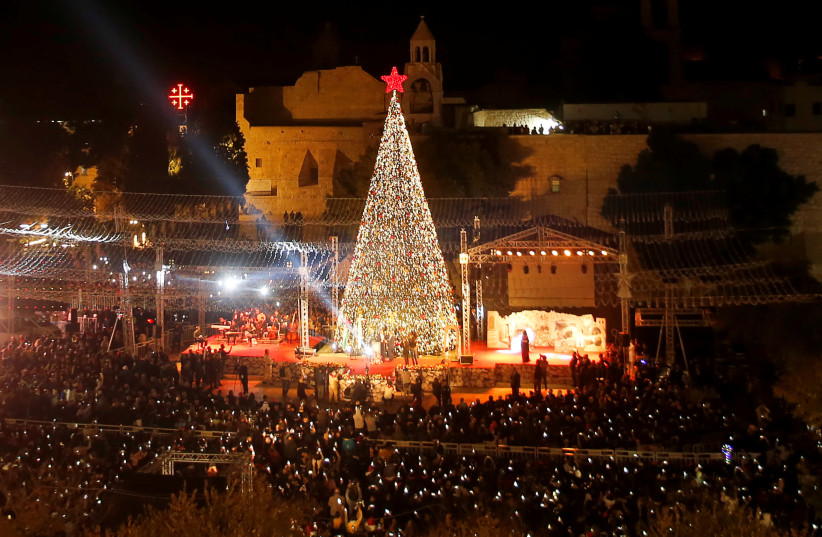A few days ago, a church in the Palestinian area of Bet Sahur, near Bethlehem, was subjected to a barbaric attack and stone-throwing that targeted everyone in the church and its musical scout band that was rehearsing for the Christmas season.
The attacks that terrified the young Christians in Bet Sahur church were met with silence from the Palestinian Authority. No one was held accountable, which can encourage many stalkers to carry out actions that may amount to a collective pogrom against Christian neighborhoods, especially in light of the jihadist currents gaining popularity in the Palestinian territories where many terrorists conducted a series of stabbing attacks against Jews during the past year.
Despite all the flattery and rhetoric about Palestinian national identity and the unity between Muslims and Christians, which is mastered by authoritarian regimes in the Levant, such as the Palestinian National Authority, the facts that hide behind this propaganda are far from any unity.
Levantine Christians separate from Muslim neighbors
The Levantine Christians have constantly been subjected to this irony. Despite their involvement in most of the nationalist and secular parties, and their pivotal role in the renaissance movement in the Levant, they lived in homogeneous, unmixed neighborhoods that are overwhelmingly inhabited by Christians only. That is due to many cultural and social differences between the Christians and the Muslim majority.
One of the key differences has been the interaction between men and women that was not common in some Muslim areas and the fact that the Christian women in the Levant had a different dress code and a more considerable margin of freedom prevented the Christians from interacting properly with other neighborhoods.

This fact made the Christian community more protective and hesitant to expose themselves to others. This sensitivity was behind the last attacks on Bet Sahur Church, when a Muslim man was accused of harassing the young Christian women in the church, which led to a fight that resulted in many Muslim men storming and attacking the church’s neighborhood.
I still remember how Christian youth organized unarmed patrols that went between churches to prevent any young men coming from other neighborhoods from physically harassing girls. All of these harassments used to be treated as isolated incidents and in most cases, the parents of the aggressors apologize and pledge that their kids will not repeat what they have done.
What happened in Bet Sahur is a dangerous indicator that alerted all Christians in the Levant because the Christians of the region are used to a tougher degree of response from the governments when something like this happens. The silence about what happened from the Palestinian Authority side makes the PLO look like an accomplice in this crime.
In countries like Syria and Jordan, Christians have a decent trust that the governments will be more serious about dealing with attacks like this that can spread fear among the Christians, prevent them from practicing their traditions and furthermore make them lose hope and certainty in their future on their historic homeland.
As a Syrian Christian, I don’t remember a large-scale attack like what happened in Bet Sahur taking place in any Syrian church without a tough response from the Syrian government.
The growing radical and aggressive sentiment in the West Bank is not something that gets any attention from the Western governments that finance the Palestinian Authority. Minorities and human rights issues and the lack of security in the West Bank are usually ignored by human rights groups.
It’s not hard to imagine how many governments and organizations were going to condemn and use the attacks against a church or a mosque in the West Bank or Israel if the attackers were Israelis.
Very few people heard about what happened in Bet Sahur other than the Christian locals, who were terrified and affected negatively by the attacks. Feeling safe and secure is everything for a minority like the Levant Christians. The absence of accountability and attention to attacks like this is the most apparent trigger for Christians’ immigration and the end of Christianity in the Middle East.
The writer is a research fellow at the Philos Project.
